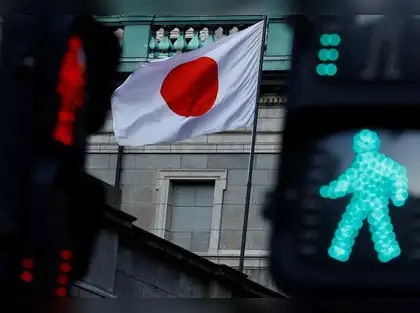On Thursday, the Bank of Japan (BOJ) decided not to change its interest rates, keeping them at 0.5%. At the same time, they lowered their growth predictions for the country due to worries about U.S. tariffs. These tariffs are making it harder for Japan’s economy, which is the fourth largest in the world.
Even though the BOJ cut its growth forecasts, they believe inflation will still reach their goal of 2% in the coming years. This suggests that while tariffs may cause some delays, they won’t completely stop the BOJ from raising interest rates in the future.
The BOJ’s board made this decision unanimously, meaning everyone agreed. They’ve noticed that the increasing U.S. tariffs have pushed them to reduce their economic growth predictions for the fiscal years 2025 and 2026.
While the BOJ has lowered its predictions for consumer prices, they still think inflation will stay around 2% until March 2028. The central bank explained that if their economic predictions come true, they will keep increasing interest rates.
They also mentioned that due to the uncertain future of trade policies, they will carefully look at how the economy and prices are developing before deciding on future changes.
Market observers are paying special attention to BOJ Governor। Ueda’s upcoming press conference for insights on how U.S. tariffs might influence Japan’s rate decisions.
Focus on Yen Value
The rise in trade conflicts, triggered by Trump’s tariffs, has upset markets and led to lower global growth forecasts by the International Monetary Fund. The BOJ noted that the path to normalizing policies might take longer because trade issues are making big exporting companies rethink their wage plans.
Even with risks from the tariffs, the BOJ feels that these won’t stop a cycle of higher wages and inflation, which is essential for raising rates. The BOJ increased short-term rates to 0.5% in January, believing the economy was ready to sustainably achieve its 2% inflation target.
Although Ueda has shown that the BOJ intends to continue raising rates, Trump’s tariffs complicate when and how much they can raise them. A survey done by Reuters in April indicated that many analysts expect the BOJ to keep rates unchanged until June, with a slight majority predicting a rate hike of 0.25% in the next quarter.





Leave a Reply